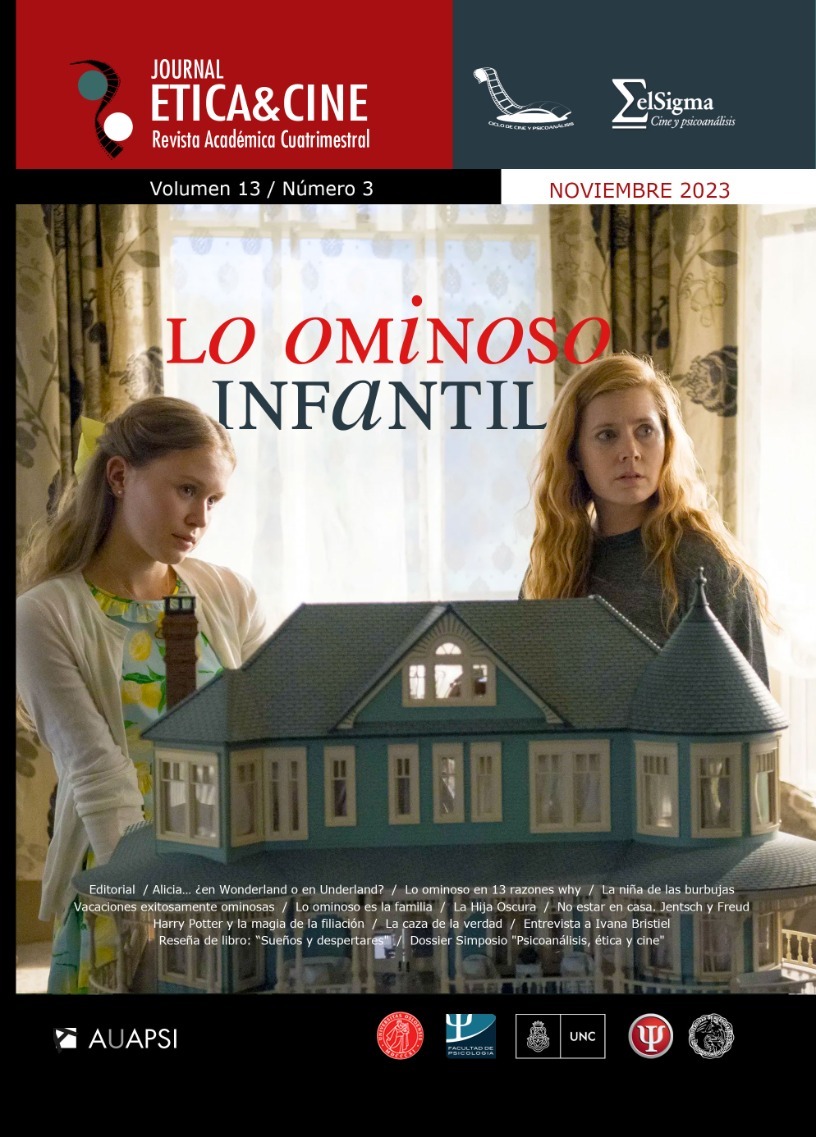Successfully ominous vacation
DOI:
https://doi.org/10.31056/2250.5415.v13.n3.43862Keywords:
Series-form, Ominous, Generalized child, Enjoyment, Success, FailureAbstract
The aim of this work is to address the notion of the infantile ominous following the formulations that Sigmund Freud made in 1919, and will try to locate how this concept can be exemplified in the series by director Mike White, The White Lotus. Firstly, the notion of “series-form” developed by Gérard Wajcman will be located in order to give rise to the function of series in the contemporary world, unlike cinema, and some of the author’s contributions in this regard will be located. On the other hand, some scenes from the series will be examined that question the notions of success and failure as they are conceived in current civilization and other scenes that can be articulated with what Jacques Lacan named in 1967 as “the generalized child” and its correlate. with segregation processes.
References
Freud, S. (1919 [1992]). Lo ominoso. En Obras completas, Tomo XVII. Buenos Aires, Amorrortu.
Freud, S. (1930 [1992]). El malestar en al cultura. En Obras completas, Tomo XXI. Buenos Aires, Amorrortu.
Lacan, J. (1967 [2012]). Alocución sobre las psicosis del niño. En Otros escritos. Buenos Aires, Paidós.
Miller, J.-A., (1996-1997 [2006] ). El Otro que no existe y sus comités de ética. Buenos Aires, Paidós.
Miller, J.-A., (2004-2005 [2013]). Piezas sueltas. Buenos Aires, Paidós.
RAE, (2023), Diccionario de la Real Academia Española. Disponible en: https://www.rae.es/
Wajcman, G. (2019). Las series, el mundo, las crisis, las mujeres. Buenos Aires, UNSAM Edita.
White, M. (productor). (2021). The White Lotus [serie de televisión]. Estados Unidos: HBO.
Downloads
Published
Issue
Section
License
Copyright (c) 2023 Ética y Cine Journal

This work is licensed under a Creative Commons Attribution-ShareAlike 4.0 International License.
Los autores que publiquen en Ética y Cine Journal aceptan las siguientes condiciones:
Los autores/as conservan los derechos de autor © y permiten la publicación a Ética y Cine Journal, bajo licencia CC BY-SA / Reconocimiento - Reconocimiento-CompartirIgual 4.0 Internacional. La adopción de esta licencia permite copiar, redistribuir, comunicar públicamente la obra, reconociendo los créditos de la misma, y construir sobre el material publicado, debiendo otorgar el crédito apropiado a través de un enlace a la licencia e indicando si se realizaron cambios.

Este obra está bajo una licencia de Creative Commons Reconocimiento-CompartirIgual 4.0 Internacional.




